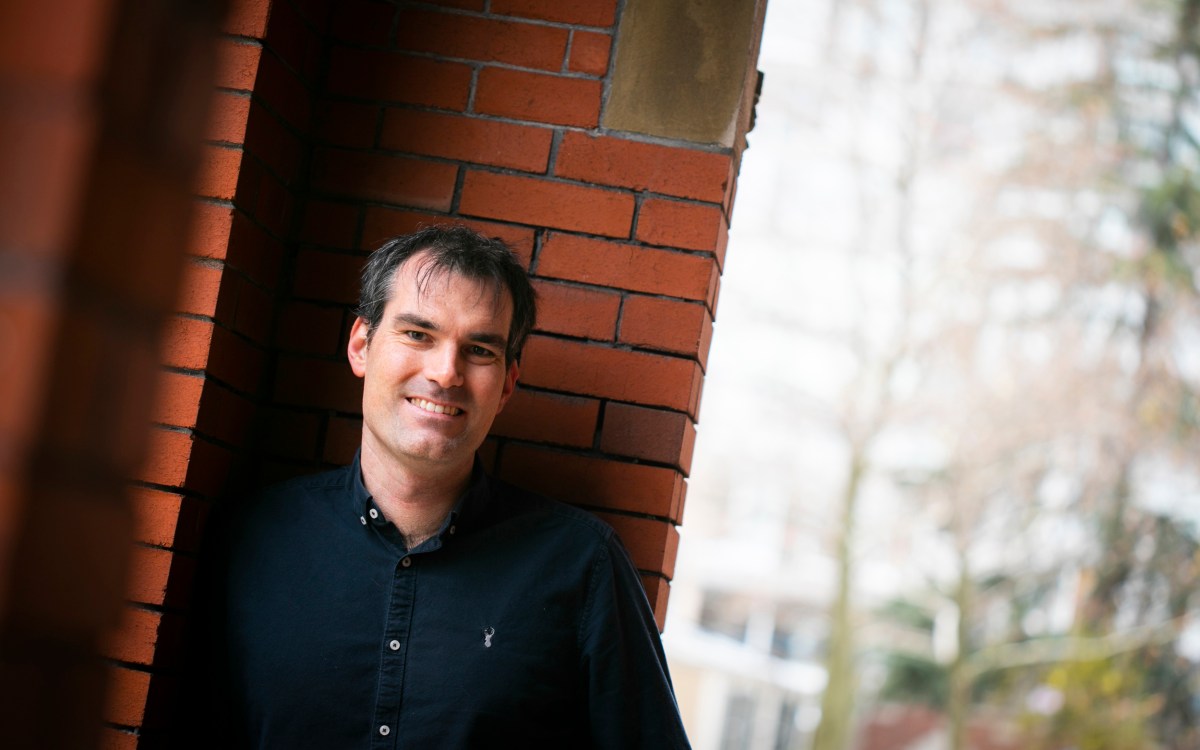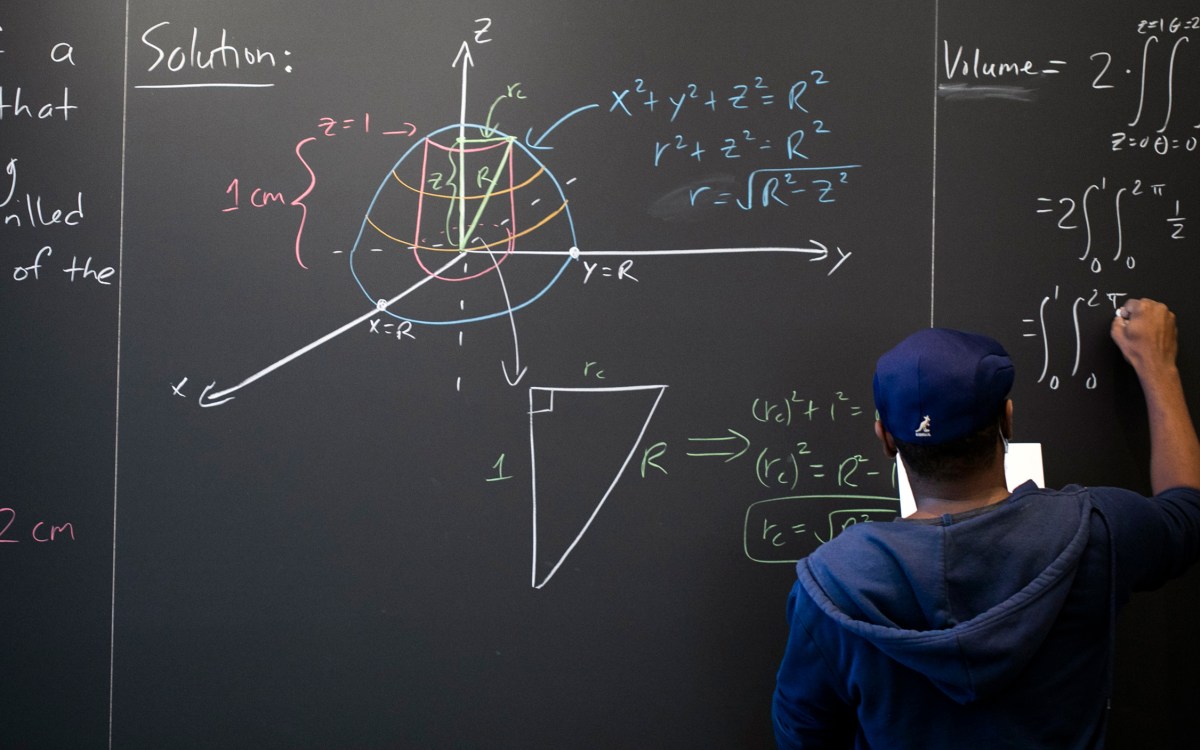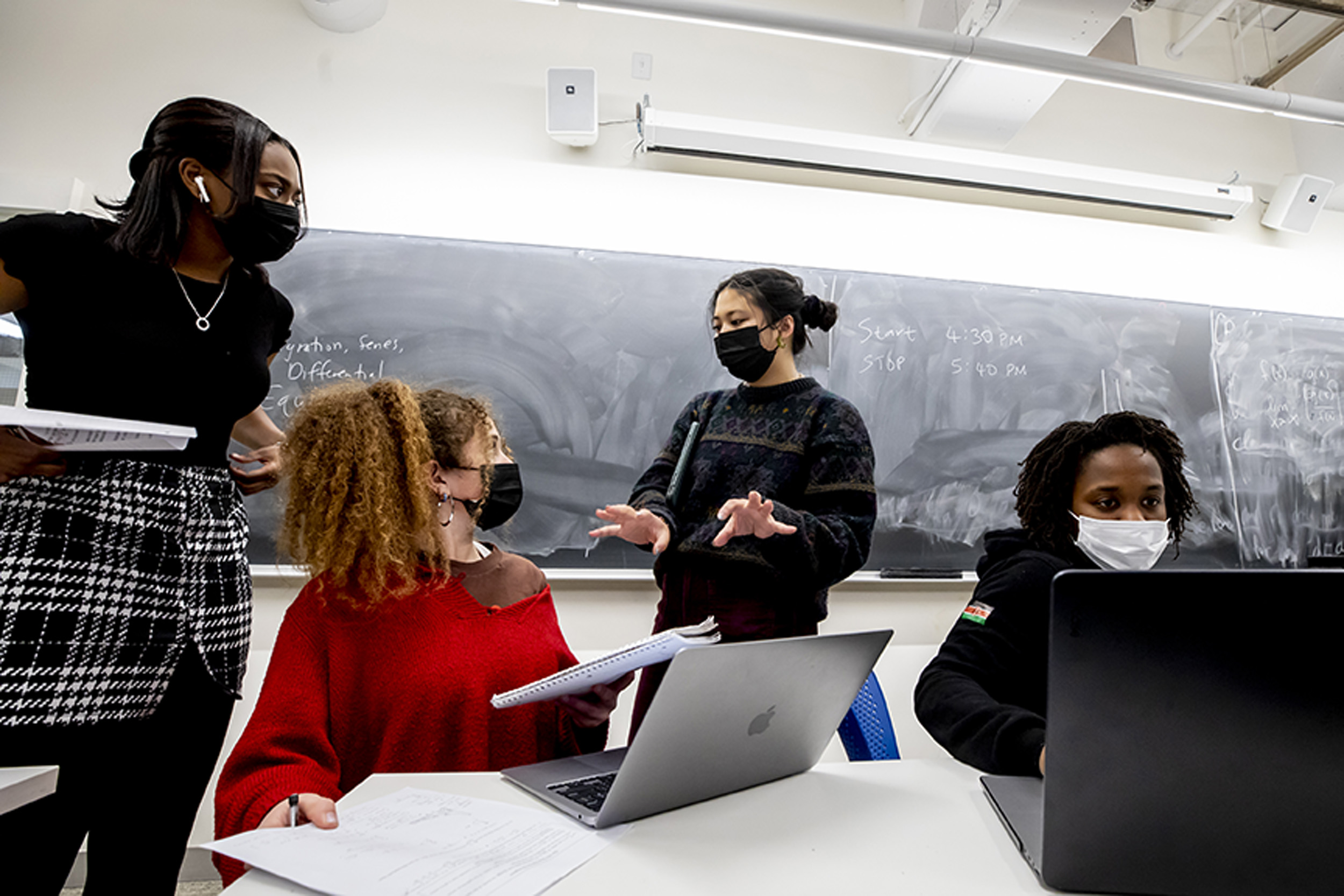
First-years Joanna Walters (from left) and Raquel Reis seek help on Psets, or problem sets, from course assistants Jocelyn Wang and Ivy Tirok.
Photos by Rose Lincoln/Harvard Staff Photographer
Let us not suffer Psets alone
Students find strength in numbers at Math Question Center
Part study hall, part help desk, part social event, Harvard’s Math Question Center drives home that math needn’t be all about solitary scholars racking their brains on Pythagorean theorems or geometry proofs. It can be done as a community, with the chance to make a few friends along the way.
“There’s always something very bonding about being very stressed out about an assignment and mutually helping each other,” said Iona Clark, a sophomore who was an MQC regular before joining this year as one of the center’s undergraduate staffers.
Run by the Department of Mathematics, the center, a cluster of rooms on the third floor of the Science Center, is open to all students taking entry-level calculus and linear algebra courses. It’s intended to assist with concepts covered in class and general questions. Mainly though, students visit the center for help with homework — namely, packets of questions called problem sets, or Psets. The assignments are time-consuming and usually grueling, with the easier ones taking a little less than an hour (this is rare) and others demanding sustained attention for three times that or more.
So why suffer alone?
“The MQC is really a community where students can come together, find each other, and give each other help,” said Hakim Walker, a preceptor in math who oversees the center. “That’s when the MQC works best … if they can help each other, share ideas, share resources, and come to their own understanding.”
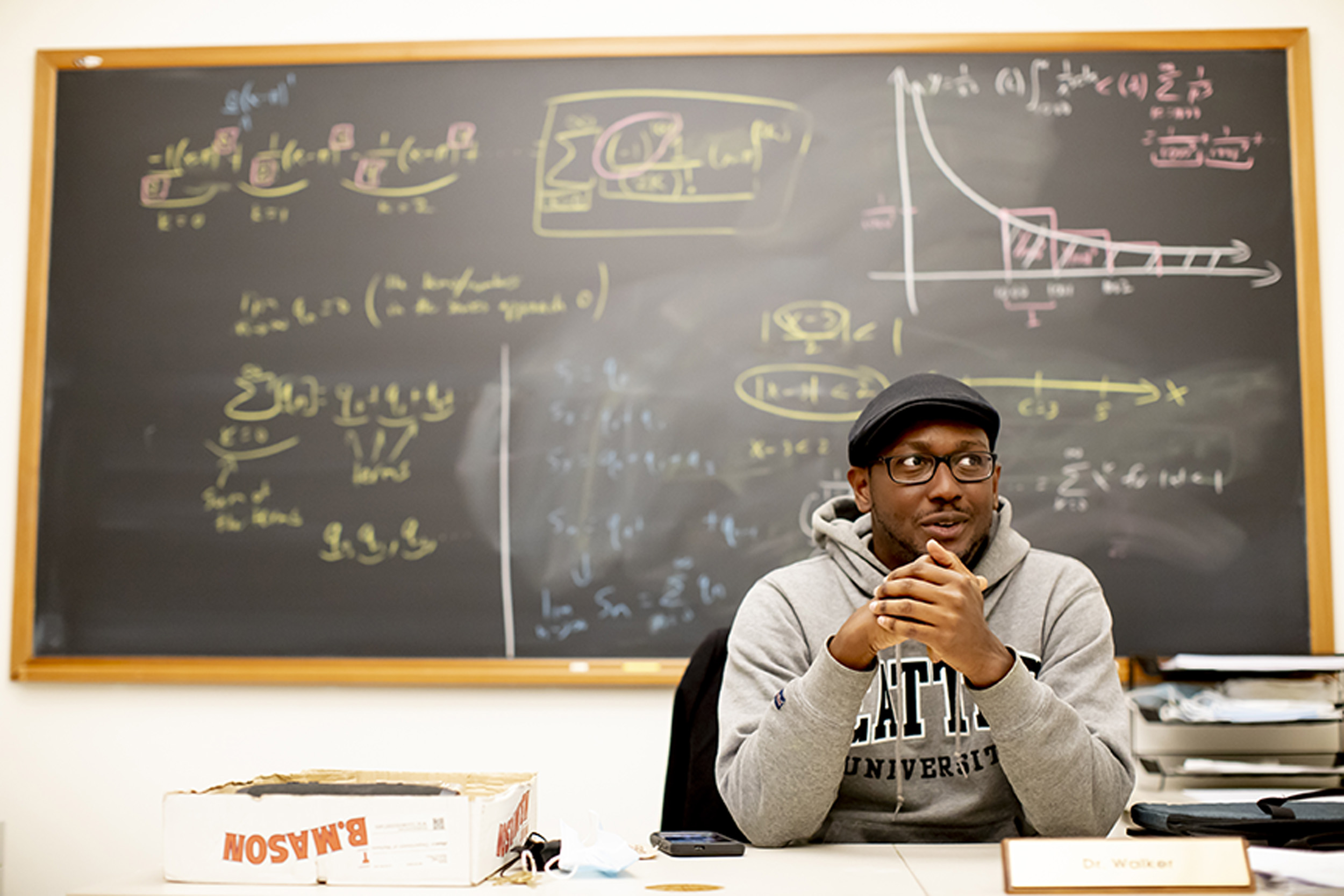
Bolu Ilelaboye, a first-year from Minneapolis, visits the center a few times a week for the constructive give-and-take.
“We’re able to really solidify and drill down where our misconceptions are,” said Ilelaboye. “With the help of the [course assistants], we’re able to really home in on that and then refine it to make sure that we actually understand it.”
The MQC is open 7:30-11 p.m. five days a week and staffed by undergraduate course assistants who guide students by asking leading questions, dropping nuggets of wisdom, or encouraging them to think about the problem another way. The busiest nights are Sundays, Tuesdays, and Thursdays (a.k.a. the nights before Psets are due), with about 30 to 40 students to a room.
“I wouldn’t call it chaotic but sometimes there’s like a nice hum or buzz — a constant working noise,” said Dumebi Adigwe, a junior from Adams House and a course assistant. “Everyone’s pretty respectful, so it doesn’t usually get insanely loud.”
That was the case inside one of the rooms on a recent Tuesday. After 15 minutes of relative quiet, the mood shifted and most of the 20 or so students started working in groups or consulting with their neighbors. The hum never faded. When someone left, someone else walked in soon after.
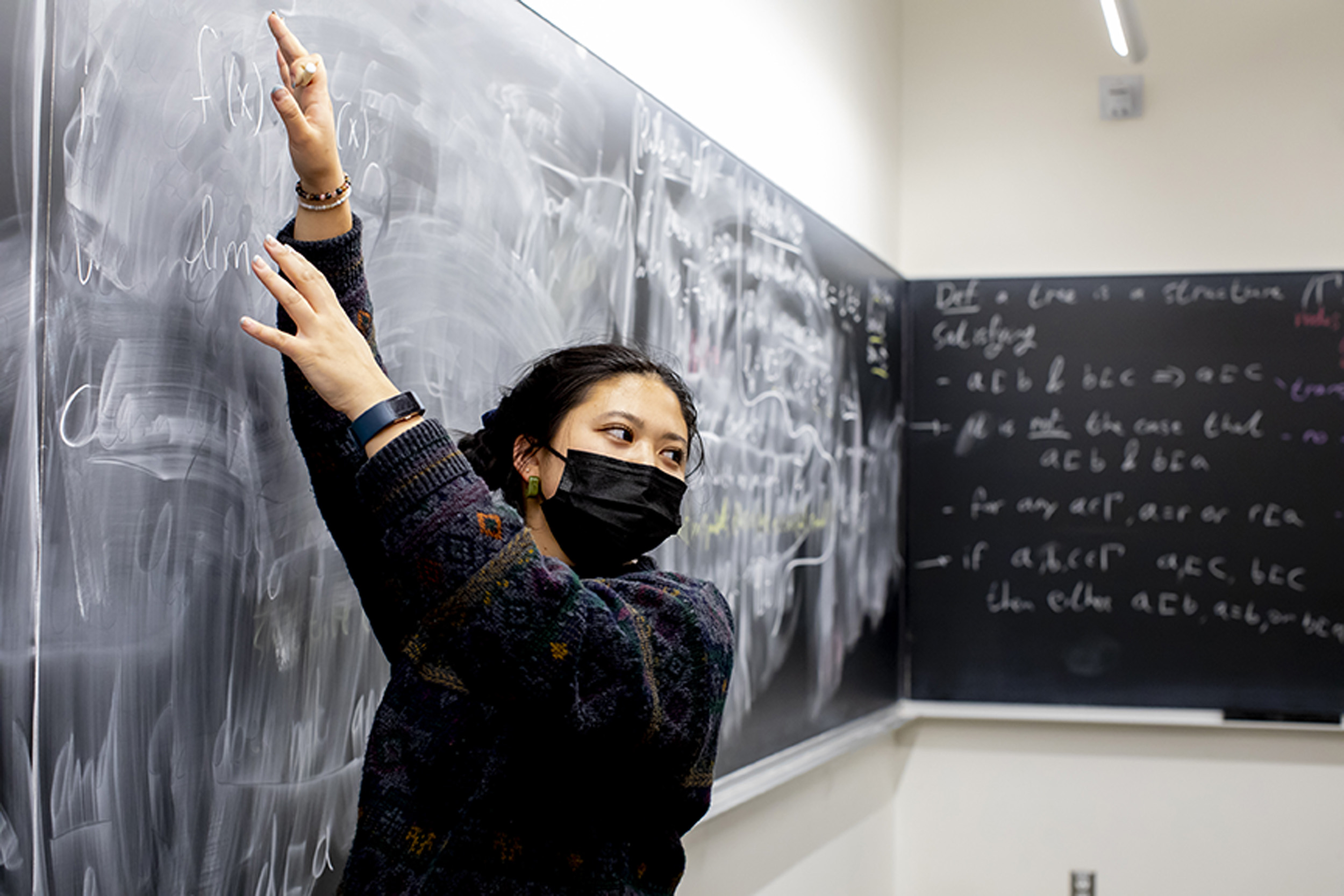
For many undergrads, this atmosphere makes the center feel a bit like a social outing.
Ilelaboye, for instance, formed an MQC group with four other students. They aren’t classmates, but they’ve gotten to know one another during visits to the center.
“We’re all in different sections, but it was just from coming to MQC and meeting them one day and from there we just kept seeing each other,” he said.
Walker and course assistants say this type of bonding happens often. “A lot of friends are made,” he said.
Other students are content to mostly keep to themselves, but appreciate the open and vibrant environment and are glad to know that help is nearby if they get stuck. Samantha Sestak, a first-year from Queens, New York, counts herself a member of this group.
“It’s a comfort having somebody that experienced the class before and has a little bit more knowledge confirm you have the right answer,” she said.
Staff members at the MQC often greet students by name. Kirkland resident and course assistant Julio Pardo ’22 admits that it can get a bit daunting when facing a room of 30 or 40 students, but said that the experience is worth it.
“Students show immense interest in the topic and they’re very, very responsive to you or to your efforts to learn,” he said. “The reason why we do it is because we truly care about students learning. When students see that, when they realize that, and when they’re grateful for that, then that truly serves as a motivation, as a confirmation that says, ‘What you’re doing is worth your time.’”



